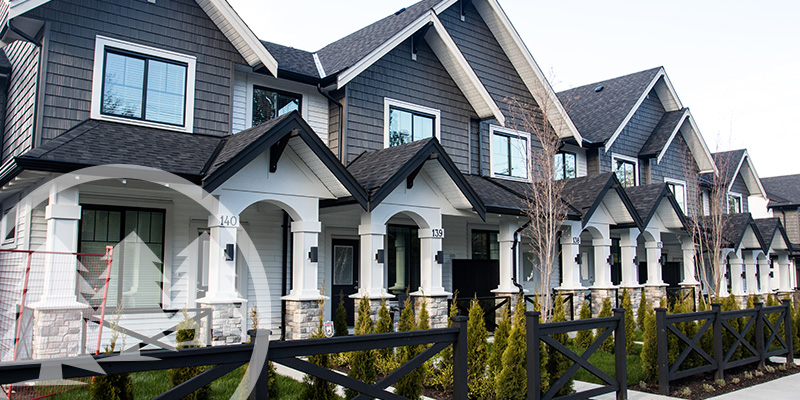Homeowners associations must adhere to applicable federal laws as well as the relevant laws in their state. For those in South Carolina, there are a handful of titles and chapters that apply. These are the different South Carolina HOA laws you must know about.
Get to Know the Different South Carolina HOA Laws
As a member of your HOA board, it is part of your job to learn about the different laws that apply to your association. Neglecting or ignoring these laws can result in serious penalties, and not just the monetary kind. If you want to avoid the risk of liability, it is imperative that you educate yourself on these laws and comply with them.
Most HOA boards already know what federal laws they must uphold. This is because federal laws apply to all associations regardless of where they are located in the United States. State laws, though, can vary wildly. Some states even lack legislation that applies specifically to homeowners associations.
Like many states, South Carolina has its own set of laws that govern the homeowners association. If your HOA is based in Palmetto State, these are the statutes you must keep in mind.
For Homeowners Associations
 The South Carolina Homeowners Association Act covers disclosure requirements as well as establishes a division under the Department of Consumer Affairs dedicated to homeowners and HOAs.
The South Carolina Homeowners Association Act covers disclosure requirements as well as establishes a division under the Department of Consumer Affairs dedicated to homeowners and HOAs.
Unlike similar statutes in other states, the South Carolina HOA Act is not as comprehensive. It only covers a limited number of topics including notice requirements of annual budget increases and the enforceability of an association’s documents.
Found under Title 27, Chapter 30 of the South Carolina Code, the SC Homeowners Association Act consists of two articles.
- Article 1 – South Carolina Homeowners Association Act
- Article 3 – Department of Consumer Affairs Services for Homeowners and Homeowners Associations
For Horizontal Property Regimes
The South Carolina Horizontal Property Act applies to horizontal property regimes that explicitly choose to adhere to the Act. To do so, the HPR must record a declaration or master deed that states their election to be governed by the SC Horizontal Property Act. This Act regulates the creation, operation, management, and authority of horizontal property regimes.
Found under Title 27, Chapter 31 of the South Carolina Code, the SC Horizontal Property Act consists of two articles.
- Article 1 – General Provisions
- Article 2 – Creation, Alteration, And Termination of Condominiums
For Nonprofit Corporations
In South Carolina, a majority of homeowners associations establish themselves as nonprofit corporations. Thus, these HOAs must follow the provisions in the South Carolina Nonprofit Corporation Act. This Act governs the corporate procedure and structure of nonprofit corporations.
Found under Title 33, Chapter 31 of the South Carolina Code, the SC Nonprofit Corporation Act consists of 16 articles, with some articles divided further into sub-articles.
- Article 1 – General Provisions
- Article 2 – Incorporation
- Article 3 – Purposes
- Article 4 – Names
- Article 5 – Office and Agents
- Article 6 – Members and Memberships
- Subarticle A – Admission of Members
- Subarticle B – Types of Memberships – Members’ Rights and Obligations
- Subarticle C – Resignation and Termination
- Subarticle D – Derivative Suits
- Subarticle E – Delegates
- Article 7 – Members Meetings and Voting
- Subarticle A – Meetings and Action Without Meetings
- Subarticle B – Voting
- Subarticle C – Voting Agreements
- Article 8 – Directors and Officers
- Subarticle A – Board of Directors
- Subarticle B – Meetings and Action of the Board
- Subarticle C – Standards of Conduct
- Subarticle D – Officers
- Subarticle E – Indemnification
- Article 10 – Amendment of Articles
- Article 11 – Merger
- Article 12 – Sale and Distribution of Assets
- Article 13 – Prohibited Distributions
- Article 14 – Dissolution
- Article 15 – Foreign Corporations
- Article 16 – Records and Reports
- Subarticle A – Records
- Subarticle B – Reports
- Article 17 – Miscellaneous
South Carolina Consumer Protection Code
The South Carolina Consumer Protection Code safeguards consumers from unfair, deceptive, or abusive debt collection practices. It works similarly to the federal Fair Debt Collection Practices Act (FDCPA), which recognizes homeowners as consumers and HOA dues as debts. Homeowners associations that employ third-party collectors must be aware of both the federal and state statute governing the conduct of debt collectors.
Victims of illegal debt collection practices as defined by law may submit a complaint with the Federal Trade Commission, the Consumer Financial Protection Bureau, or South Carolina’s Department of Consumer Affairs. Alternatively, the FDCPA also grants victims the right to file a private lawsuit against a debt collector in federal or state court. The suit must be filed within a year from when the breach took place.
Fair Housing Laws
 One of the most important South Carolina HOA laws to know has to do with fair housing. South Carolina’s Fair Housing Law forbids housing discrimination on the basis of race, color, national origin, sex, religion, familial status, or disability. It offers similar protections as the federal Fair Housing Act (FHA).
One of the most important South Carolina HOA laws to know has to do with fair housing. South Carolina’s Fair Housing Law forbids housing discrimination on the basis of race, color, national origin, sex, religion, familial status, or disability. It offers similar protections as the federal Fair Housing Act (FHA).
Housing discrimination victims may report violations to the U.S. Department of Housing and Urban Development or the South Carolina Human Affairs Commission. The report must be filed within a year from when the discriminatory act occurred. Victims also have the option of filing a private lawsuit in federal district court. In this case, the lawsuit must be filed within two years of the violation.
Examining Specific HOA Laws in South Carolina
When you go through all of the statutes above, you will find many sections that apply to HOAs. If you lack the time, though, here are some of the most commonly discussed issues and the homeowners association laws in South Carolina that address them.
Display of the United States Flag
Most homeowners associations have strict rules on how properties should look. This is because maintaining the community’s aesthetic appeal is a big part of preserving property values. Some communities, though, go as far as forbidding owners from displaying flags on their property. If it’s the United States flag, South Carolina has some provisions against this prohibition.
According to Section 27-1-60 of the South Carolina Code, homeowners and tenants have a right to fly one portable, removable U.S. flag in a manner consistent with the 36 U.S.C. Sections 171-178. The statute prohibits HOAs from including a restriction contrary to this within their governing documents.
Notice of Annual Budget Increase
Under Section 27-30-140 of the South Carolina Homeowners Association Act, boards must notify homeowners at least 48 hours before the meeting where an annual budget increase decision will be made. The association must post the notice in a common area, particularly in a place easily seen by the members. The association may also post the notice on their website, send it via email, or through any other means as required by their bylaws.
It is worth noting, though, that this does not apply to homeowners associations organized under the SC Nonprofit Corporation Act.
Records Inspection
Members of an HOA have a right to inspect or copy the association’s records as stipulated in Section 33-31-1602 of the South Carolina Nonprofit Corporation Act. The member must provide the association with written notice at least five days prior. Records up for inspection include accounting records, membership lists, and more.
Get Legal Help
 As you can see, there are several South Carolina HOA laws that association boards must know about. Educating yourself on these laws and how they can affect your HOA is essential to protecting the association from potential liability.
As you can see, there are several South Carolina HOA laws that association boards must know about. Educating yourself on these laws and how they can affect your HOA is essential to protecting the association from potential liability.
Of course, it is one thing to read up on these laws and another thing entirely to understand and apply them to your situation. If you need help staying up-to-date with these laws, Cedar Management Group offers legal assistance in addition to a wide range of services. Call us today at (877) 252-3327 or contact us online to get a free proposal.
RELATED ARTICLES:
- Your Guide To North Carolina HOA Laws
- HOA Collections And The Fair Debt Collection Practices Act
- Service Animals In HOAs: What Does The Law Say?






